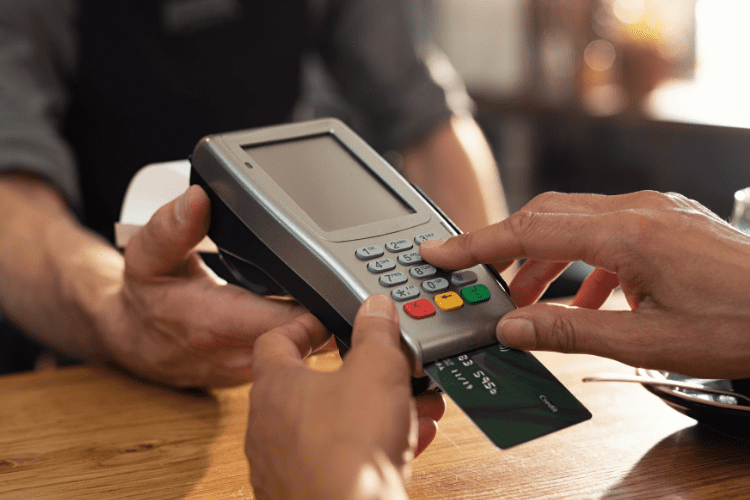Sick Of Overdraft Fees? Biden’s Proposal Could Save Consumers Billions

Has your bank ever given you a lovely gift of an overdraft fee when your bank account dipped below zero?
You’re not alone. While banks have been cutting overdraft fees in recent years, many Americans still feel their financial sting.
Luckily, there’s potentially good news on the horizon. President Biden’s administration is proposing a new rule that might just be a game-changer for bank users nationwide.
Let’s explore the president’s proposal and see how it may affect your wallet.
How Do Overdraft Fees Work?
Before diving into the new proposal, let’s discuss what overdraft fees are in the first place.
Originally, overdraft fees were used as a courtesy when paper checks were still around. But as debit cards have become the norm, overdraft fees have become a way to penalize spending more than you have in your account.
They’ll still let your transaction go through but will charge you a steep penalty.
Unfortunately, these fees disproportionately affect those who can least afford them. What started as a small deficit can quickly balloon into a cycle of debt that’s hard to break.
What Is Biden’s Groundbreaking Proposal?
In a bold move, the Biden administration, through the Consumer Financial Protection Bureau (CFPB), is proposing a rule that could significantly lower overdraft fees.
With some banks charging as high as $39, the Biden Administration and CFPB claim overdraft fees hurt Americans, especially those living paycheck-to-paycheck.
This proposal suggests slashing these fees to as low as $3 or whichever amount the CFPB sees as appropriate.
This stark policy shift is aimed at the largest banks and credit unions and will save consumers billions annually.
How This Policy Would Affect You
This change can bring massive savings for everyday bank users.
Now, you don’t have to worry as much if you accidentally overdraw your account. And even if you do, the fee won’t be nearly as crippling as before.
More banks are also offering small credit lines as an alternative.
Those living paycheck to paycheck will have a second chance to improve their finances and reduce the risk of dealing with overwhelming debt because of massive fees.
Tips To Navigating Your Bank’s Overdraft Policies
As we await the implementation of this policy, understanding how to deal with overdraft fees is a crucial step to managing your finances. Here are a few strategies:
1. Check Your Account Regularly & Set Up Alerts
Looking at your bank account at least once every few days is necessary. And with online banking and mobile apps, keeping an eye on your balance is easier than ever. Always set up alerts when you’re running low on cash or have upcoming automatic payments. Doing this will prevent risky transactions that can lead to overdraft fees.
2. Link to a Savings Account
Many banks offer the option to link your checking account to a savings account in case you don’t have enough. This setup automatically transfers funds from savings to checking if you’re about to dip below zero. This option can be a more effective safety net without the exorbitant fees.
3. Avoid Overdraft Protection
This service might sound like it’s helpful but if you want to be safe, opting out of overdraft protection ensures you won’t need to deal with the bank’s fees anymore. Once opted out, your bank will decline any transaction that could result in an overdraft.
Even if it’s inconvenient in certain situations, it’s a more financially wise choice if you constantly find yourself at risk of overdrawing your account.
The Bottom Line
President Biden’s proposal to slash overdraft fees is part of a massive shift in banking regulations and could bring relief to millions of Americans.
While we wait for these changes to take effect, being proactive about managing your account and understanding your bank’s overdraft policies can help you avoid unnecessary fees going forward!
Read More:










